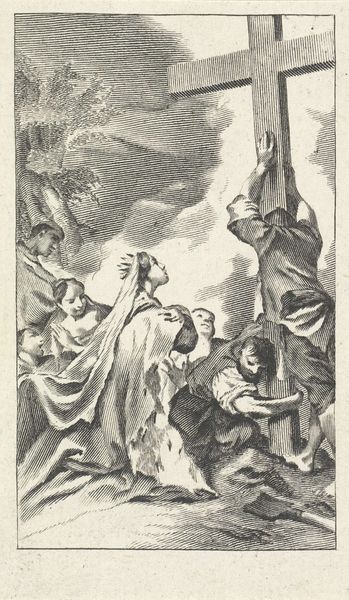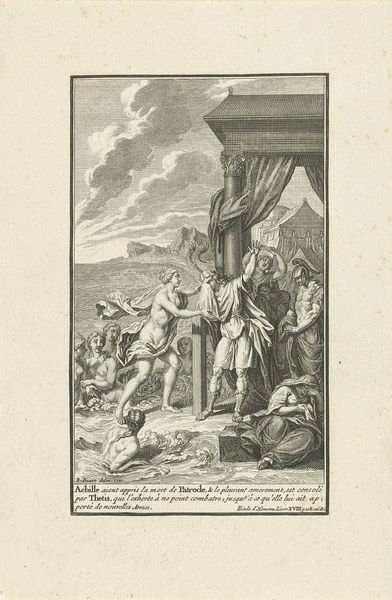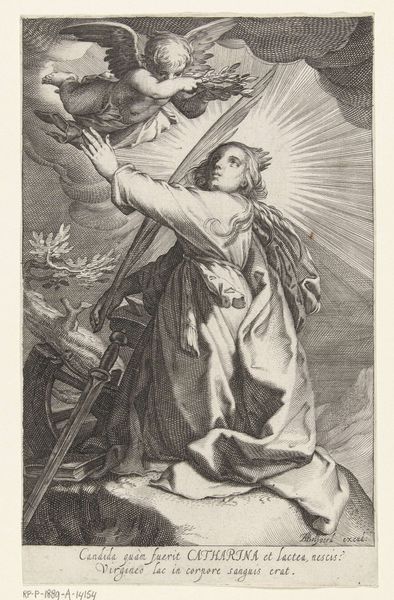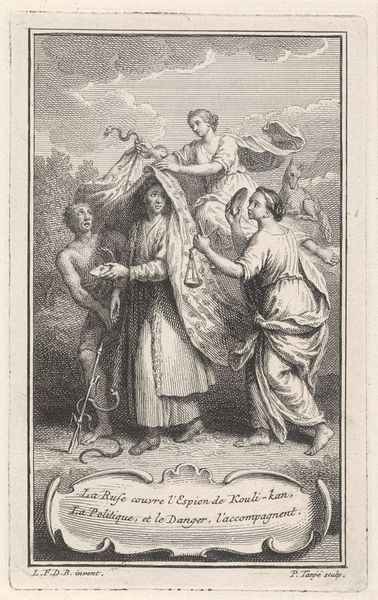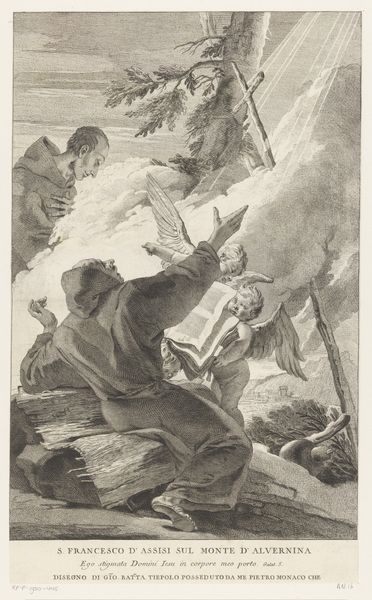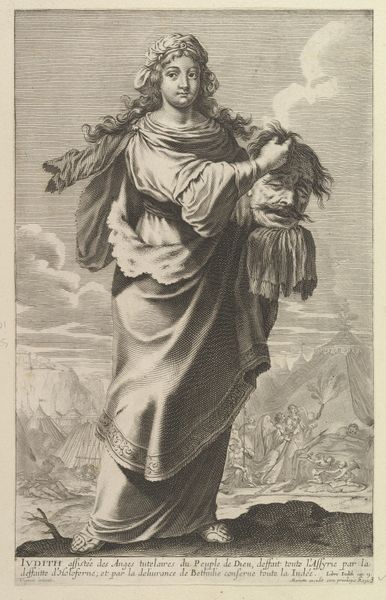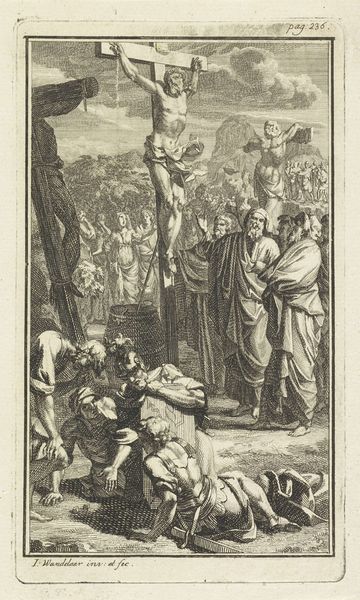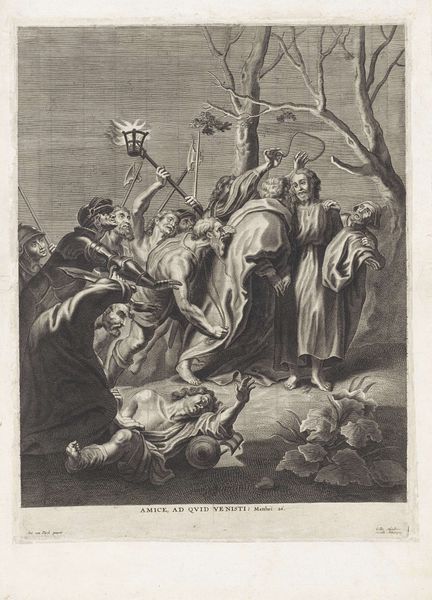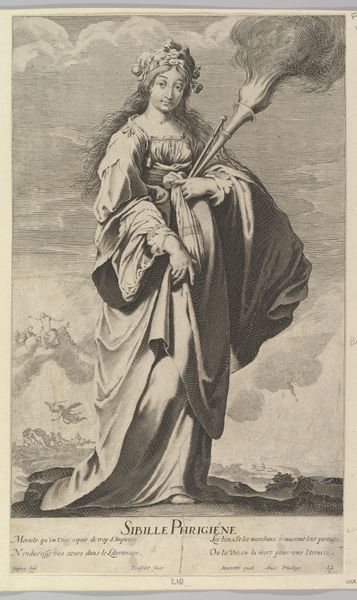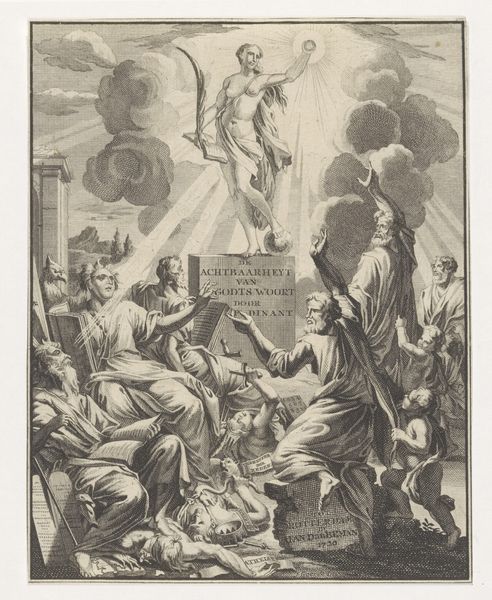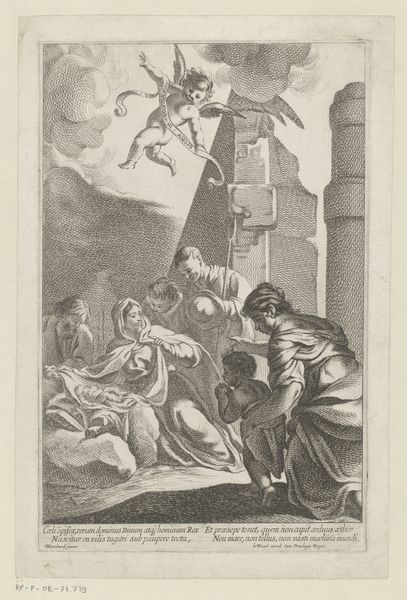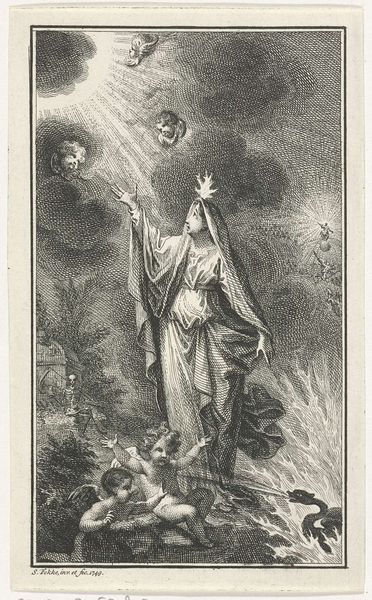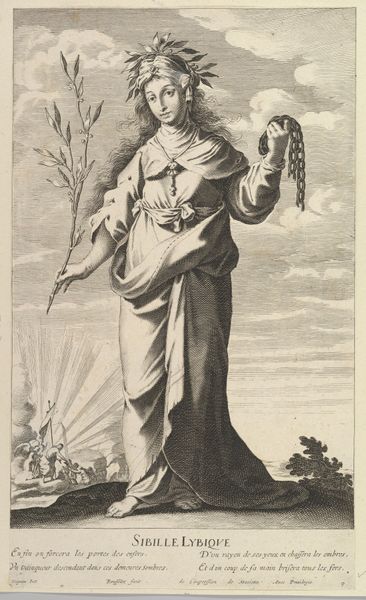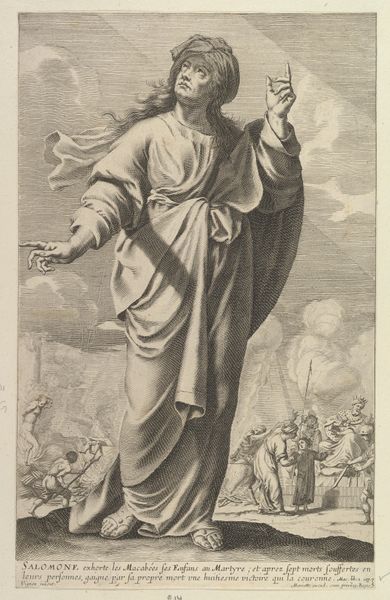
print, ink, engraving
#
narrative-art
#
baroque
# print
#
pen illustration
#
pencil sketch
#
caricature
#
ink
#
ink drawing experimentation
#
pen-ink sketch
#
surrealism
#
history-painting
#
engraving
Dimensions: height 279 mm, width 186 mm
Copyright: Rijks Museum: Open Domain
Editor: So, here we have "The Martyrdom of Henricus Turck," a print made between 1650 and 1695 by Gaspar Bouttats. It's a pretty graphic depiction. There's violence happening in the background and foreground. How do you interpret the visual narrative in this engraving? Curator: What immediately strikes me is the tree. Think about the tree’s symbolism. In many cultures, it's a potent signifier of life, growth, and connection. Yet here, it becomes a site of suffering and death. Turck is tied to it, almost becoming part of the tree itself, an offering, if you will. What feeling does that create? Editor: That is definitely dark irony. It feels like his life and the natural world are violently opposed, yet connected. Almost like an inversion of a typical life cycle. Curator: Precisely! Now, look at how the figures relate. The armed men represent earthly power, literally pointing their weapons at Turck, right? This isn’t merely an execution; it's a clash of ideologies. He remains resolute. Do you think his gaze directs our understanding of faith versus force? Editor: Yes, I hadn't quite focused on that contrast. His calm amidst the chaos almost feels… defiant, resolute. His eyes convey suffering and acceptance simultaneously. The engraver uses shadow to create a focal point of his figure, that draws my eyes and invites further questioning and reflection. Curator: Bouttats is skillful in using shadow. This is about memory. Turck is no longer an individual but becomes a symbol. That moment solidifies and inspires enduring remembrance. Editor: This reframes how I understand the piece. Seeing it as less a specific event, and more about an iconic representation. Curator: Absolutely! It transforms the event into a larger symbol. Seeing it now, what lingering emotions do you take away? Editor: It really made me reflect on how symbols carry memory and shape understanding, especially when intertwined with violence and belief. Curator: Indeed. Bouttats' print serves as a powerful example of cultural continuity through visual imagery.
Comments
No comments
Be the first to comment and join the conversation on the ultimate creative platform.
